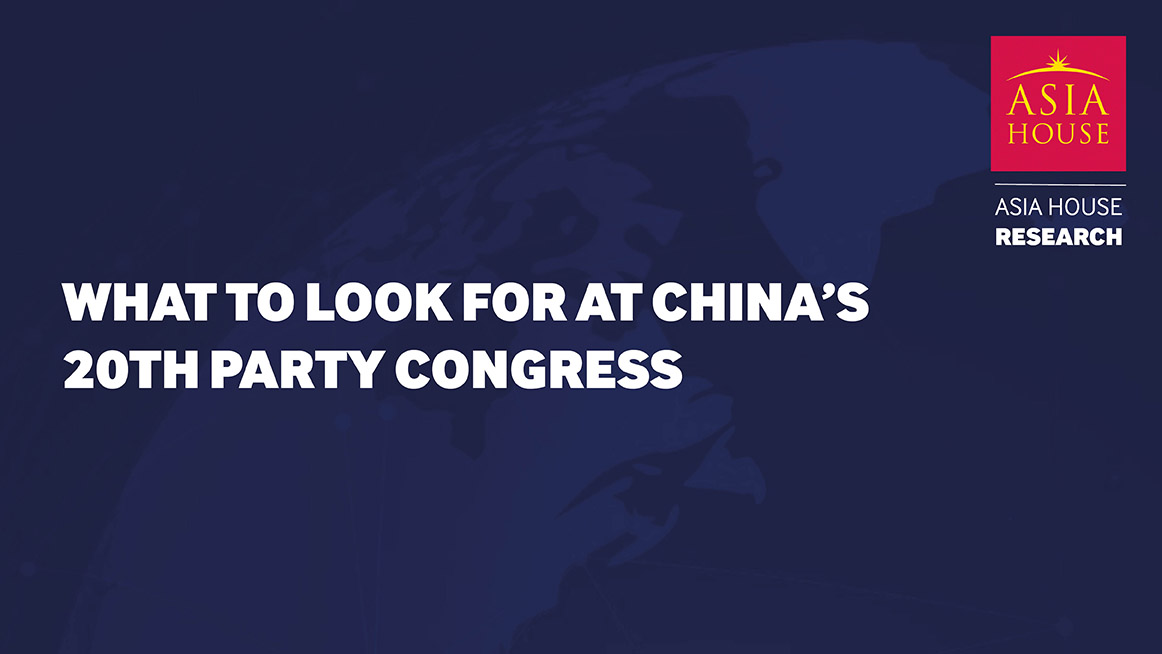Shaped by personnel changes, economic challenges, and factional dynamics, the upcoming National Congress of the Chinese Communist Party will have profound implications for China and the global economy. In a new research briefing, Zhouchen Mao, Head of Research and Advisory at Asia House, shares his analysis ahead of October’s key summit.
Key messages
- The 20th Party Congress will be closely watched not only because of major personnel changes, but also for future policy direction on the economy, society and international relations.
- The decisions made at the October Party Congress are not only relevant for China, but will also shape the global economy.
- The Party Congress work report is likely to convey a message of continuity in implementing President Xi Jinping’s key domestic priorities as the country moves towards achieving the second centenary goal of building a “modern socialist country”. These priorities are broadly classified as strengthening self-reliance and sufficiency, addressing wealth disparity and ensuring financial stability.
- Major personnel reshuffling at the Party Congress will be influenced by factional affiliation, age and the extent to which President Xi can personally decide the appointment process.
- The foreign policy direction of developing China into a global leader is highly unlikely to change. The Party will increase its effort to maintain a stable external environment that is conducive to the domestic development by continuing to pursue a more active leading role in both global and regional affairs, which will include deepening South-South relations and expanding its footprint in Southeast Asia. It will also continue to strengthen its ability to defend its national interests and regime security.
- To balance between investor confidence and pandemic prevention, China will continue to “tweak and refine” dynamic Zero-COVID policy. But a notable shift away from the strategy is unlikely in the short-term.
READ THE BRIEFING

